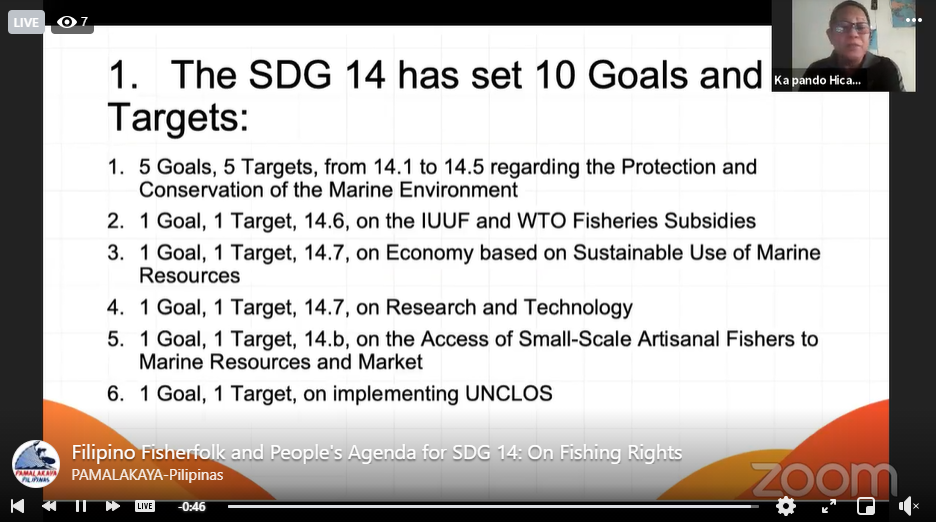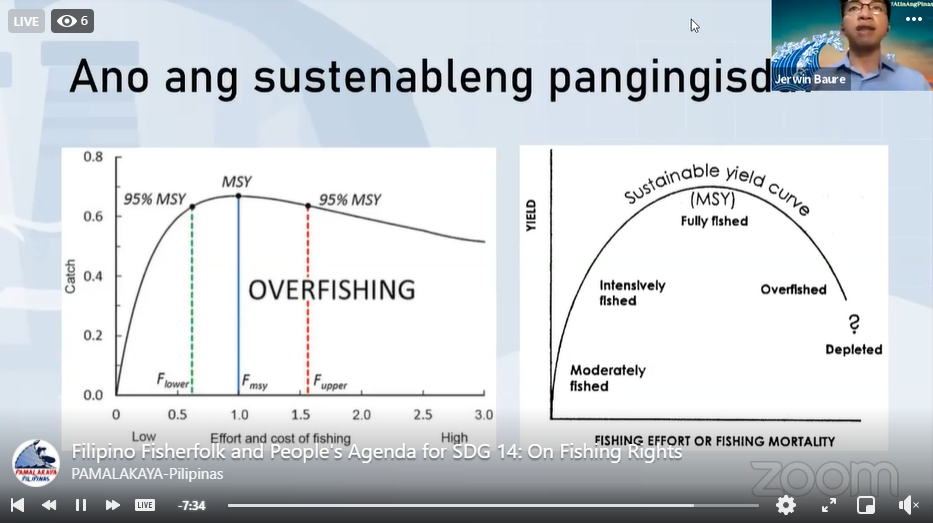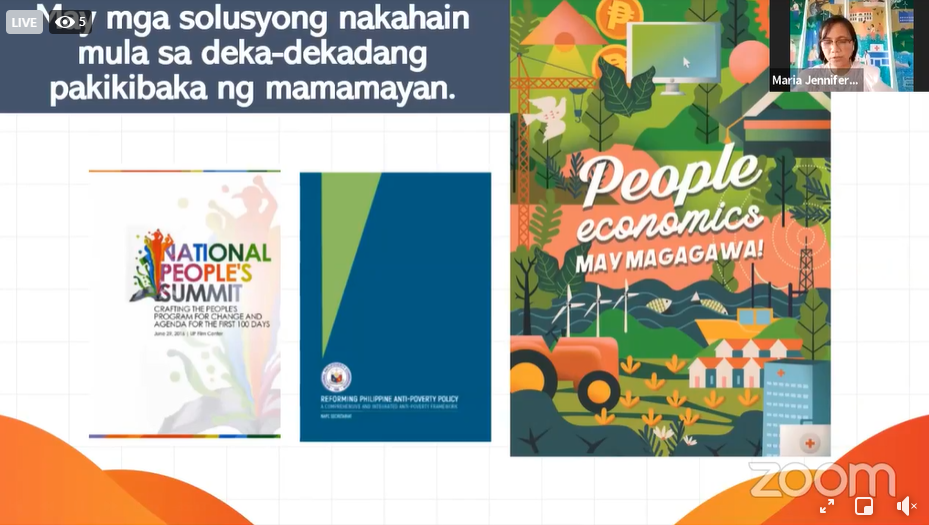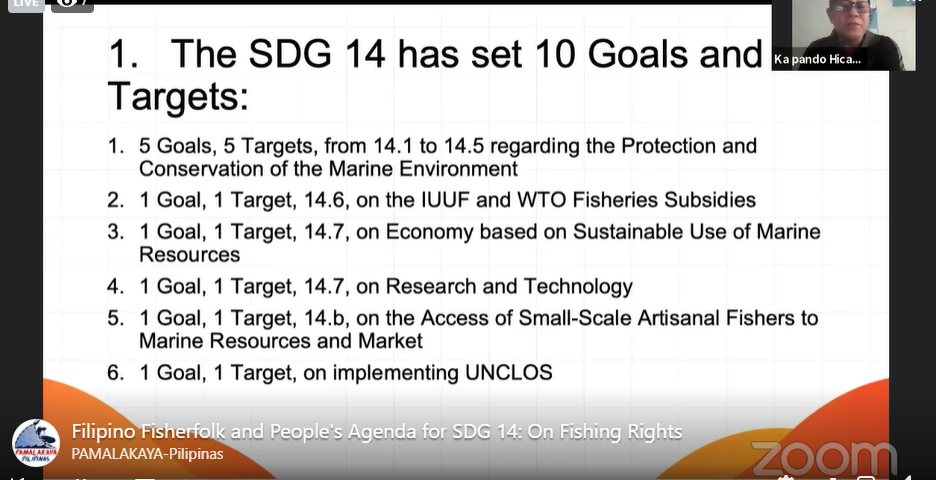Manila, Philippines – More than a week before President Rodrigo Duterte’s last State of the Nation Address (SONA), fisherfolk and civil society organizations gave his administration with 1/10 rating on its implementation of the Sustainable Development Goal No. 14 “Conserve and sustainably use the oceans, seas and marine resources for sustainable development,” or briefly Life Below Water during an online forum streamed on the social media accounts of various groups. It was organized by the Pambansang Lakas ng Kilusang Mamamalakaya ng Pilipinas (PAMALAKAYA), Council for People’s Development and Governance (CPDG) and AGHAM Diliman.
“The Duterte government grossly failed the SDG 14, even at the very appreciation of its essence, and of the whole 2030 Agenda. It failed on the elementary stage of setting Goals, Targets and Indicators, selectively highlighting items it favored, and clearly abandoned its essence of benefiting the marginalized and vulnerable small fisherfolk sector,” Fernando “Ka Pando” Hicap, PAMALAKAYA National Chairperson and a former lawmaker for Anakpawis Party-list, cited during the presentation of the Fisherfolk and People’s Agenda for SDG 14.
He particularly criticized that out of 10 goals and 10 targets set by the United Nations for SDG 14 on its 2030 Agenda for Sustainable Development, the Duterte administration, through the National Economic and Development Authority (NEDA) only picked one goal, as part of its national counterpart agenda. NEDA only included indicator “14.5.1 Coverage of protected areas in relation to marine areas,” on its 2030 Nationally Determined Numerical Targets for the SDGs.
Moreover, Jerwin Baure, AGHAM Diliman Chairperson and PAMALAKAYA resident fisheries expert stressed that small-scale fishing is actually the form of sustainable fisheries and should be promoted and protected. He elaborated on the sustainable yield curve and overfishing or surpassing the maximum sustainable yield (MSY) is through increased effort and cost predominantly of commercial fishing, and ultimately would lead to depletion, manifested by low catch. He emphasized that the future of fishing are fleets of artisanal or small-scale fishing vessels.
The online forum was part of the CPDG campaign “People’s review of the SDGs in 2021: Rising above the health and economic crisis in the time of COVID-19,” that involved people’s organizations and sectoral groups. CPDG is promoting alternatives to the neoliberal Philippine Development Plan 2017-2022, such as People Economics, based on the socio-economic and democratic rights of Filipinos and national sovereignty or freedom from dictates of foreign entities.
CPDG Coordinator Jen Guste, briefed on the background of the SDGs and the concepts of People Economics. She correlated the persisting economic crisis to dominant economic policies and programs which are detrimental to the welfare of basic and marginalized sectors. Moreover, it is vital that the country should push on the pillars of People Economics, which are mainly developing the countryside, building the industries, protecting the environment, upholding of people’s rights and welfare, public finance development and attainment of economic independence.
Ultimately, Hicap appraised the efforts of the Duterte government for SDG 14 with 1/10, particularly based on the ratio of the number of gov’t targets compared to the UN’s.
“We could even give a negative rating, as the very framework of the government, predominantly based on the Fisheries Code, is totally anti-small fisherfolk, and useless against Chinese imperialist plunder in the West Philippine Sea. The lip-service target of protecting marine areas is even demolished by the continuing destruction of the marine environment by China. The fulfillment of SDGs in the country, apparently would only be possible if Duterte resigns from his post, and a genuine economic policy, such as based on People Economics is realized in the country,” Hicap ended. ###

Pamalakaya National Chairperson Ka Pando Hicap presenting critique on Duterte regime’s neglect on fishing rights in SDG 14. 
AGHAM Diliman Chairperson and Pamalakaya Resident Fisheries Expert Jerwin Baure stressing that small-scale fishing is sustainable fishing. 
CPDG Coordinator Jen Guste briefing on SDGs and People Economics.
